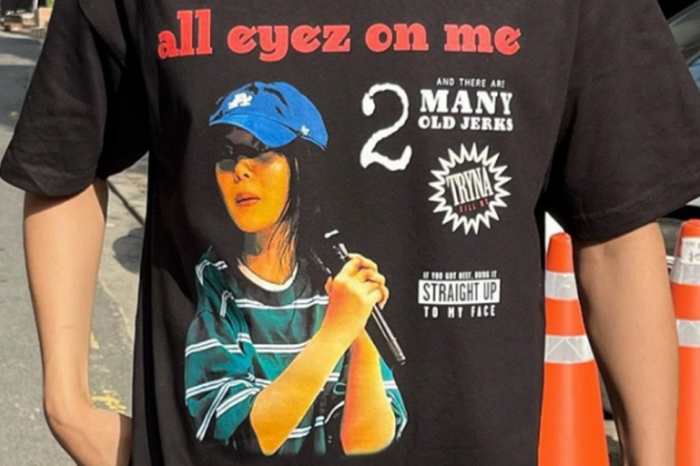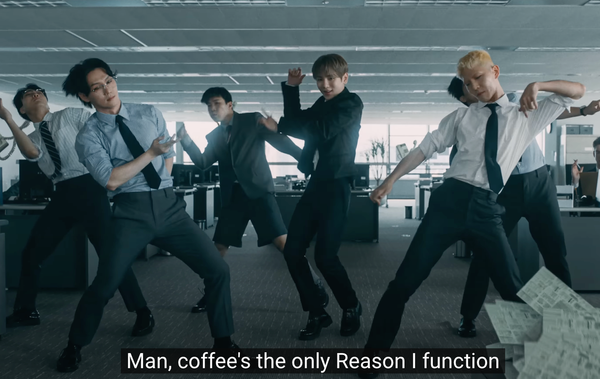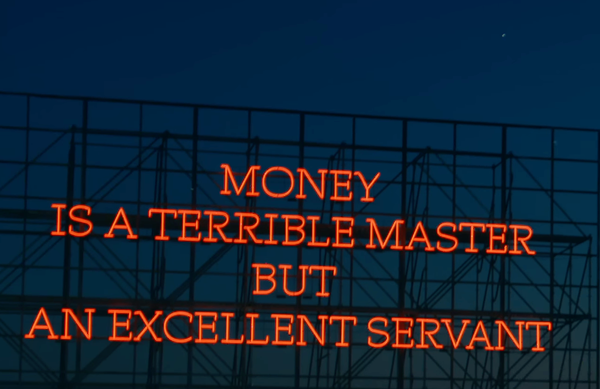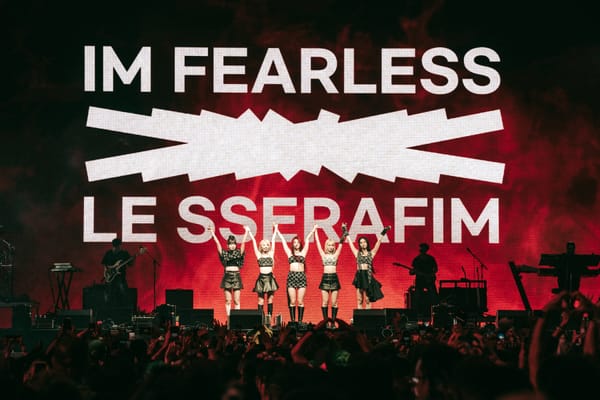The way we talk about fandoms
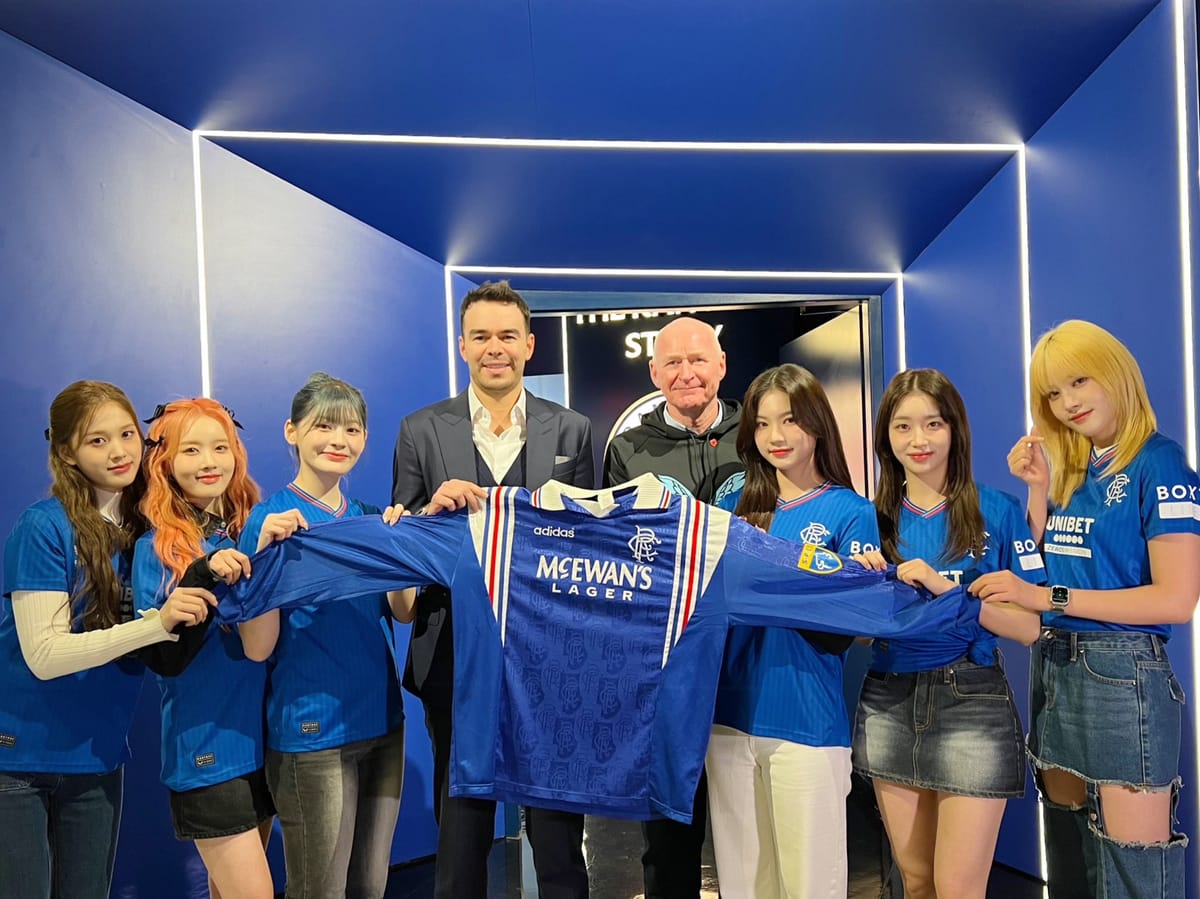
Everything I know about the Premiere League is based on Ted Lasso. So imagine my surprise a few weeks ago when a friend of mine told me her brothers were trying to decide whether they should keep their plans for a trip to the UK, or if they should sell their tickets to an upcoming football game for thousands of dollars. The football/soccer game is apparently a big deal because some bigtime coach is retiring, and people are shelling out tons of cash to see it live.
My friend's brothers ultimately decided to not cash in on it, but instead go for the experience. They had originally planned the trip around that game without knowing its potential historic importance, so weren't going to change things from the way they were meant to be.
As someone who recently booked a trip to Tokyo and Hong Kong based around seeing a concert (NCT 127 at the Tokyo Dome), and has a history of traveling to other countries and cities (I went to Vegas the first time to see BTS) and vacationing and/or working around my concert travel plans, I really love the fact that they're doing this.
But zooming out, I'm a bit pissed off, to be honest, because of the false equivalency that sports fans are somehow superior to pop music ones. (The hierarchy of music fandoms.. That'll be another newsletter!)
For context, my friend told me about her brothers' trip while we were with five other friends of ours. Not a single one said anything about two 20 and 30-something guys planning their vacation around a sporting event; of course, that would happen. But that's not the typical reaction towards anyone planning to travel for a concert: then you become not a lover of a pop cultural entity, but a crazy, screaming fangirl.
It was just another reminder of the double standard that music, but more specifically pop music, faces in comparison to the biggest, most rabid intense of all: sports.
I hate to tell you this, but if your buying merch, dressing up in clothes representing your faves, collecting trading cards... You may be either a K-pop fan or a sports fan.
And that's totally fine because these are both forms of (highly lucrative) entertainment.
But right now when there is no money for pop culture coverage and millions upon millions being invested into sports media, it's something on my mind more often than it usually is.
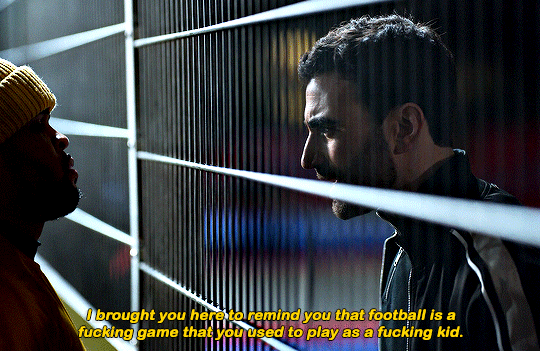
I initially was going to write this article as a dark spoof titled, "The Dark Side of Football," mocking the common trope that intensely stereotypes K-pop by depicting all the ills as the sum of its parts. It's always entertained me that many of the people who have written these probably didn't think twice about the ills of sports.
The same way that many talk about the K-pop training system and how it treats people, the way the industry has its share of heartbreaking suicides, etc...? Many of these are comparable to the way that we, especially in America and especially regarding US football, set athletes up to potentially get lifetime injuries and all for a game. And, of course, for the millions. (Which you too can now win, because as all my Hulu ads tell me lately, sports betting will make everyone millionaires. As if there's another way to take advantage of sports fans, the ATMs of massive millionaires.)
When a team wins, or loses, a big game, it feels like of course they'll trash an entire US city. Increasingly, even footballers (the British sort) are concerned about their own fans being violent, and racism and homophobia is par for the course.
These are all not normal, but we let them be normal because, well, they're about sports. If you were to apply these same situations to music fans, it'd be the most-reported on topic of the day for an entire lifetime.
But don't worry... There is is, of course, on top of all the sports games broadcasted daily, channels and outlets dedicated to sports.
I'm not a sports fan, aside from the Olympics, and have asked sports fan friends (of all genders and walks of life) why athletes makes so much money, and why sports in general is so lucrative. They tell me it's because it's the connectivity, the glory, the athleticism, the skill, etc. When I point out that musicians have much of the same relationship with their fans and it's merely the difference between artistry versus athleticism, they say that it's not competitive enough to bring glory which... well, they clearly have never witnessed fandoms in a charting war.
But arts and pop culture? Fuck them. Let's let them die by the wayside, and stereotype their fans as screaming, crazy fangirls for literal decades.
If I sound bitter, it's because I am. We accept this sort of double standard and enable it, reinforcing the idea that fandoms of one sort or another are more authentic, more valued in the global culture we find ourselves operating in.
It ultimately comes down to one thing: sports are a male-oriented arena, whereas the arts, and music, is seen as a female-oriented one. This is entirely regardless of the actuality, the talent, the fandom makeup, etc. (Nowadays, female fans are actually considered hugely impactful among sports observers.)
Athletes are modern gladiators, I've been told, fighting for glory.
Musicians can't compete with that sort of toxic glorification, or the billions pumped into fuelling that fan-based infrastructure. And heaven forfend you compare pop artists, no matter how big they are.
Even professionally, sports reporters are experts, regardless of any blatant favoritism. Music reporters, when they're women especially, are fans no matter experience levels. Personally, I've been writing for over 10 years, written thousands of stories, authored a book, been featured in many documentaries and news shows, and am still "just a fan" and never an expert to naysayers or, really, some editors I've encountered who still think that K-pop isn't an industry or art form worth taking seriously.
Last year, I asked a sports writer friend of mine about whether this disconnect applied to sports, since I had recalled seeing them talking about it ages back. There had been a a job hiring post saying what teams some outlets were looking for reporters for.

The idea that any culture reporter would be looked at this way was shocking for me at the time, though now we've seen Beyoncé and Taylor Swift reporters get hired so I guess things are changing. Although there is PLENTY of discourse around those hirings, and it's to be seen if and how fans and industry folks will treat them as the experts they are.
But one thing that my friend said has particularly struck with me: "I think it's normal that someone interested in sports would have a fandom!!" Meanwhile, , especially at the start of my career I've actively gone out of my way to distance myself from any named-fandom because I know that it opens myself up to either a) accusations of favoritism or antipathy b) keeping me out of meetings. I know not every music journalist, especially those who cover K-pop, do that, but I see the way people look at and discuss "fan journalists" versus "expert ones." Other writers have different perspectives, and part of me is truly sad that this is the path I've picked, to , but I always think back to the very first event I covered for Billboard years ago.
There's a longer story involved (and I'm embarrassed at the multi-paragraph sob story I sent to my editor at the time, very impressed he kept working with me after that!) but essentially the event coordinator had confirmed artist interviews to Billboard, then been unable to deliver. When I was trying to get him to work with me to come up with some sort of alternative coverage, he grew defensive and told me to "learn from real journalists" and come back in a few years. He, of course, meant male, rock-reporting journalists. There was an implicit "you silly little girl, don't make trouble" feel to it all. This was after he had just blown coordinating coverage with Billboard, the only mainstream outlet attending what would end up a few years later becoming a defunct K-pop festival.
That guy hasn't done much in the years since, and I don't even remember his name. He shows up on my Linkedin every once in a while, and I kinda just roll my eyes. I know I've done as well as I can with my career; I've come a long way and know more about craft than many others. But I've never been able to dump that feeling that he voiced, that if something goes wrong, it'll always be the woman in the room's fault, regardless of actuality, because this is a silly little girl industry that cannot ever compare with the serious boys clubs.
But fuck that feeling, and fuck that double standard. We're all fans, we're all here for the art of entertainment, whether it's athleticism or music. There's no "greater" form of fandom, just more normalized in this patriarchal capitalist society. Let's all just enjoy what we will, however we will, and hopefully the next generation of fans and journalists don't have to deal with these double standards. I hope my friends' bros enjoy their trip and their game, and I hope we all can just keep enjoying.
If you followed a kinda random, but hilarious, K-pop-meets-sports overlap, last year StayC accidentally wore the wrong jerseys, and ended up getting "adopted" by the Rangers football club in Scotland. More of this, less "sports is superior to music" false equivalencies.
What I'm listening to
ONF "Bye My Monster" is giving me flashbacks to a very different stylistic era of K-pop, where harmonies reigned. Kinda hoping this is ONF's big break finally; they have a great discography, I definitely suggest readers go check it out.
What I'm reviewing next
Surprise! I want to start a weekly review column. Share some recent albums you'd like to hear my take on in the comments, and I'll see what inspires me.
What I'm reading
Everybody Wants to be an Artist, Nobody Wants to Pay for Art from First Floor: "It’s strange to live in a time where seemingly everyone wants to be an artist—and entire industries have sprung up to cater to that desire—yet there’s almost zero collective concern for those who are already making a living (or trying to) in creative fields."
Patrick St. Michel wrote about K-pop Coca-Cola, which I have not yet tried, and ruminated on what it says about K-pop: "I do think Coca-Cola K-Wave captures the current state of K-pop well, in a way that isn’t purely negative. I think there’s a lot of confusion at play — what even *is* K-pop in 2024 when the “K” part of it is being discarded? what the hell fruit did they put in here? — but I also find an eagerness to reassert itself and return to a simpler time of celebration of music / visuals / aesthetics".
PSA: I would like to try this soda if anyone in NYC knows a hook up.
Wooseok Ki wrote about business insight he's learned from K-pop in Q1 of 2024: "The data and current events exemplify K-pop’s successful business model coupled with the fandom-driven strategy, and we are about to see shake-ups in the paradigm as this model is exported."
